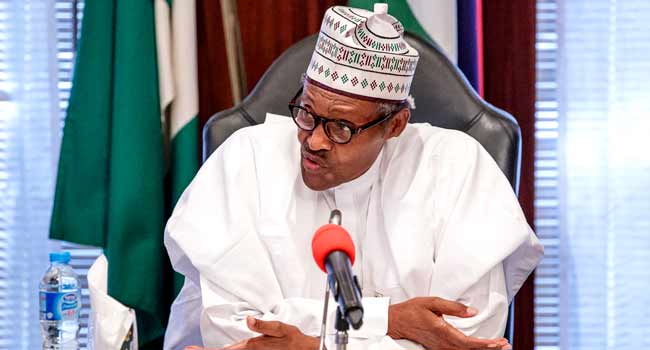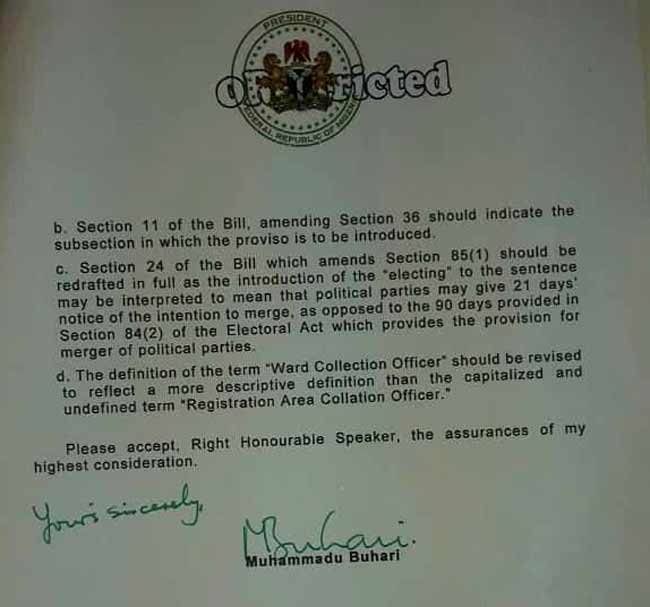President Muhammadu Buhari has again declined assent to the Electoral Act Amendment Bill.
The President explained the reasons for his decision in letters sent to the leadership of both chambers of the National Assembly.
A copy of the letter which was dated December 6, 2018, and personally signed by the President, was obtained by Channels Television on Friday.
According to President Buhari, signing the bill into law at a time when the nation is close to the general elections may give way for confusion and disruption of the polls.
He, however, asked the National Assembly to specify in the bill that the amendments to the Act would come into effect and be applicable to elections commencing after the 2019 polls.
The President insisted that declining assent to the bill was “in the best interest of the country and our democracy”.

Read the President’s letter addressed to the Speaker of the House of Representatives, Yakubu Dogara, below;
“Pursuant to section 58 (4) of Constitution of the Federal Republic of Nigeria 1999 (as amended), I hereby convey to the House of Representatives, my decision on 6th December 2018 to decline Presidential Accent to the Electoral (Amendment) Bill, 2018 recently passed by the National Assembly.
I am declining assent to the Bill principally because I am concerned that passing a new electoral bill this far into the electoral process for the 2019 general elections which commenced under the 2015 Electoral Act, could create some uncertainty about the applicable legislation to govern the process.
Any real or apparent change to the rules this close to the election may provide an opportunity for disruption and confusion in respect of which law governs the electoral process.
This leads me to believe that it is in the best interest of the country and our democracy for the national assembly to specifically state in the Bill, that the Electoral Act will come into effect and be applicable to elections commencing after the 2019 General Elections.
It is also important for the following drafting amendments to be made to the Bill:
- Section 5 of the Bill, amending section 18 of the Principal Act should indicate the subsection to which the substitution of the figure “30” for the figure “60” is to be affected.
- Section 11 of the Bill, amending Section 36 should indicate the subsection in which the proviso is to be introduced.
- Section 24 of the Bill which amends Section 85 (1) should be redrafted in full as the introduction of the “electing” to the sentence may be interpreted to mean that political parties may give 21 days notice of the intention to merge, as opposed to the 90 days provided in Section 84 (2) of the Electoral Act which provides the provision for merge of political parties.
- The definition of the term “Ward Collection officer” should be revised to reflect a more descriptive definition than the capitalised and undefined term “Registration Area Collation Officer.”
Please accept, Right Honourable Speaker, the assurances of my highest consideration.
















